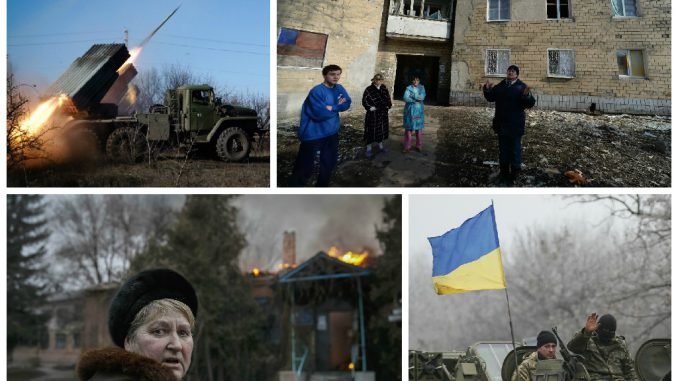
Minister of the Interior Agnė Bilotaitė has signed an order to reinstate a one-off payment of €1,000 for migrants who have not been granted asylum in Lithuania and who voluntarily agree to return to their country of origin. Lithuania is also considering accepting refugees from Ukraine amid alarm bells over Russia’s invasion of Ukraine, lrytas.lt reported.
Efficiency is again expected
Vitalijus Dmitrijevas, Deputy Minister of the Interior, told Žinių Radijas “Aktualusis interviu” programme that the second application of the €1,000 benefit relies on the effectiveness of the last one.
“This decision is based on the effectiveness of its application in the previous period. During the period between 8 December 2021 and 20 January 2022, when that decision was taken and in force, we managed to return around 360 persons voluntarily.
We can see that that number is quite significant and if that momentum is maintained and if that incentive works, we expect similar numbers to continue under this decision that we have taken. In any case, we believe that this is an effective measure and that it has undoubtedly proved its worth because the cost of keeping one migrant in Lithuania is significantly higher,” said Mr Dmitrijevas.
Although increasing the benefit may mean that the number of people wanting to return will drop significantly once the measure expires, the Deputy Minister said that it is worth trying even then.
The Migration Department has processed around 3,000 asylum applications, but only around 100 were positive. Migrants who have received a negative response must then be sent back to their countries of origin. However, Mr Dmitrievas said that this process is currently complicated.
“Forced return depends on agreements with countries of origin, and in the absence of readmission agreements, the process is complicated enough. (…) In any case, in terms of what would happen to those people who would definitely not be returned, we would aim to return them voluntarily when there is no possibility of forced return.
If, after a certain period, it really could not be done, then we would probably talk about issuing some form of document to those people and staying in Lithuania for that period. It would all depend on the effectiveness of that mechanism”, said the Deputy Minister of the Interior.
If the migrants would not return to their countries of origin, Dmitrijevs said that further integration in Lithuania would be considered.
“In any case, these integration processes will have to be accelerated and focused on because, in reality, there is probably no other way. If some people remain in Lithuania, then, in any case, we need to work with them and provide various other assistance”, Dmitrijevas said.
Focusing on the maximum scenario
Amidst the talk of a possible Russian invasion of Ukrainian territory, the possibility of allowing some Ukrainians to enter Lithuania is being considered. Dmitriyev said several scenarios are being modelled, but the focus is on a maximum admission of 100,000 people.
“For today, we are modelling specific scenarios, which are 5,000 people, 25,000 people and 100,000 people, but we are still thinking that the number could be even higher. In terms of specific numbers, it would again depend on the scale of the action and the area in which it would take place. (…)
Currently, we have the task of setting up the accommodation sites according to these scenarios, which is a work of such a large scale and scope. More specifically, at this stage, we are summarising the situation we have from the municipalities on the places they have proposed. We are waiting for information from the state institutions ministries on what they can offer. We are roughly aiming for a maximum number of 100,000 people,” said the Vice-Minister of the Ministry of Interior.
Asked whether migrants from Ukraine would be accommodated in centres similar to those currently irregular housing migrants, Mr Dmitriyevas said that the municipalities offer buildings for different purposes.
“The flow of people would probably be spread out in Lithuania. Therefore, the accommodation places would probably be different. The municipalities are offering schools, dormitory-type buildings, and buildings adapted for other uses.
In terms of an algorithm, we would see a mechanism such as the establishment of registration centres, perhaps larger ones, where we could receive a more significant number of people and then we could start to distribute them through specific accommodation places further,” he said.
When considering the reception of Ukrainians or Belarusians in the country, there is a different approach than migrants from further afield. According to the Deputy Minister of the Interior, this is due to the various situations in the countries.
The Deputy Minister of the Interior added that the cost of maintaining such refugees could not be compared to the current expenses. According to him, this is mainly due to restrictions on mobility.
“I would not like to conflate these calculations either. Those calculations made about illegal migration from other countries to Lithuania, which we faced last summer, are somewhat specific because the measures are slightly different. Other accommodations, services, catering are included in a somewhat systematic way because all those persons were accommodated without the possibility of movement.
As for the benefits related to Ukrainians who may be seeking assistance in Lithuania, this should be calculated in a slightly different way, because it could also be specific amounts according to a separate regulation under which they could be supported,” Dmitriyevas said.


Be the first to comment